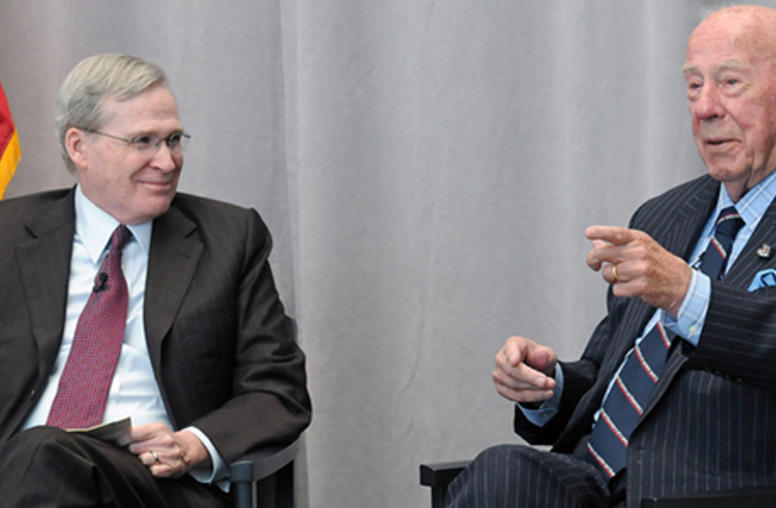In honor of former Secretary of State Dean Acheson’s service to the United States and the cause of peace and innovation in peacemaking, USIP initiated this lecture series to deal with the important topics of the day. The lecture series helps call attention to topics that further the mission of USIP: preventing and resolving violent international conflicts, promoting post-conflict stability and development, and increasing conflict management capacity, tools, and intellectual capital worldwide.
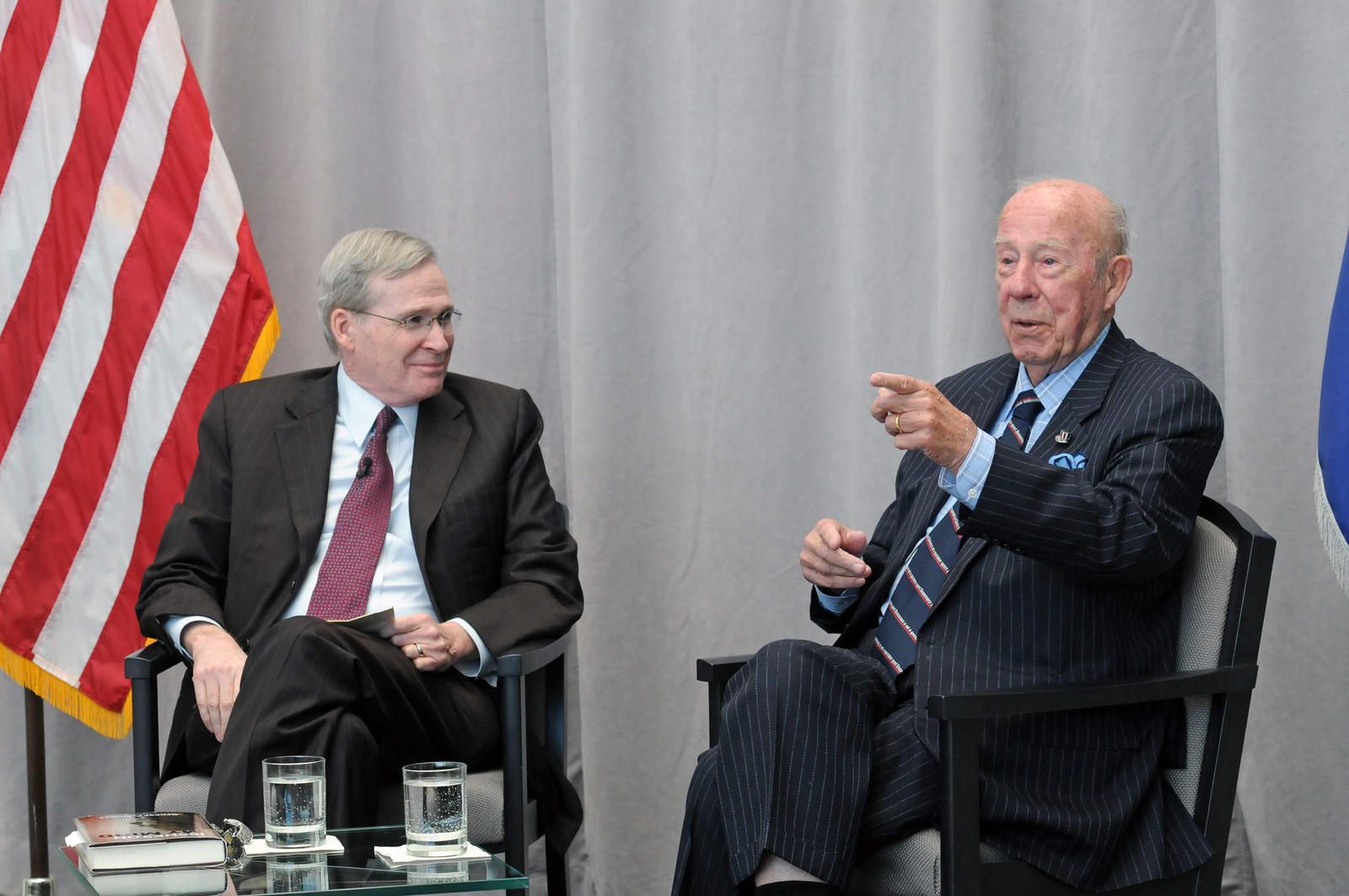
2015: Secretary of State George Shultz
U.S. Secretary of State George Shultz received the 6th Acheson Award.
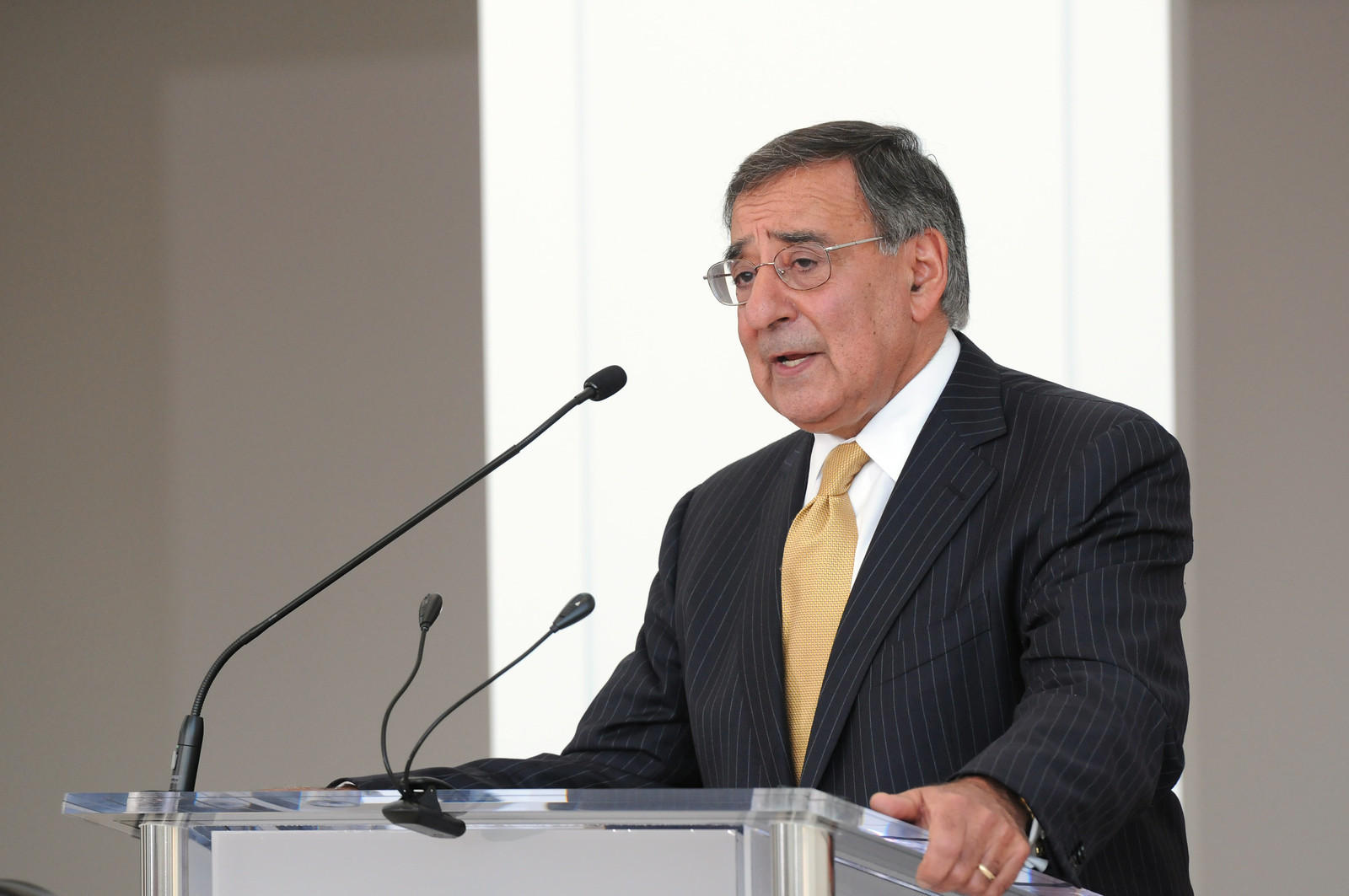
2012 Secretary of Defense Leon Panetta
U.S. Secretary of Defense Leon Panetta gave the 5th Acheson Lecture at USIP. In his speech, Panetta outlined a bold plan to build the capacity of other countries and thereby reduce the strains on the U.S. when it comes to solving the world’s security problems. Following his remarks, he was presented with the Acheson Award.
- Panetta Outlines Partnership Plan at USIP
News Feature by Gordon Lubold | June 29, 2012 - Read Secretary Panetta's remarks (external link)
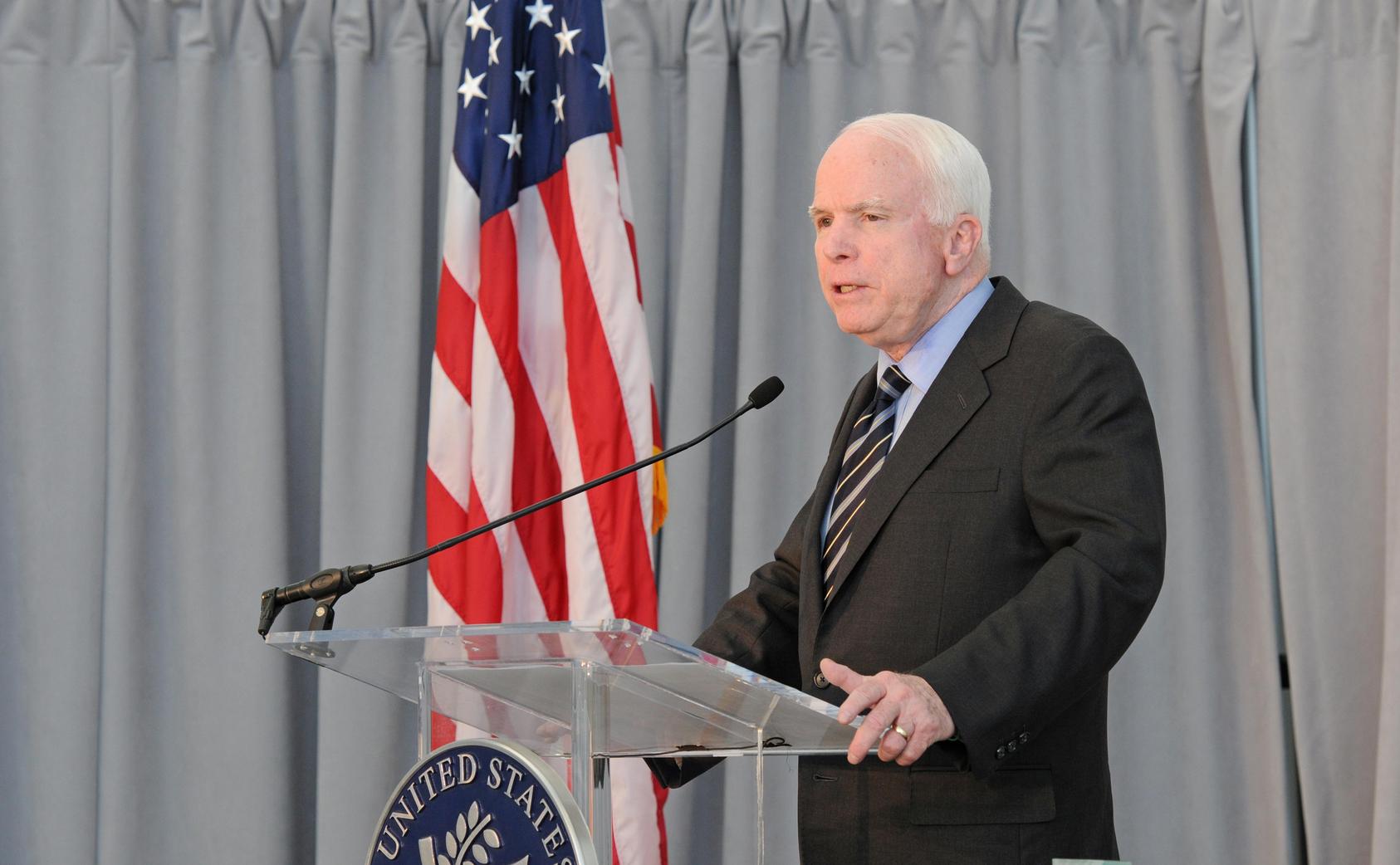
2011: Senator John McCain
U.S. Senator John McCain (R-AZ) received the 4th Acheson Award and delivered the Acheson Lecture at USIP. After receiving the award, Senator McCain discussed the status of U.S. interests in the Middle East during a time of revolution and upheaval.
- Sen. John McCain: U.S. Must Sustain Momentum of Arab Spring
News Feature by Gordon Lubold | May 20, 2011 - Read Sen. John McCain's remarks (external link)
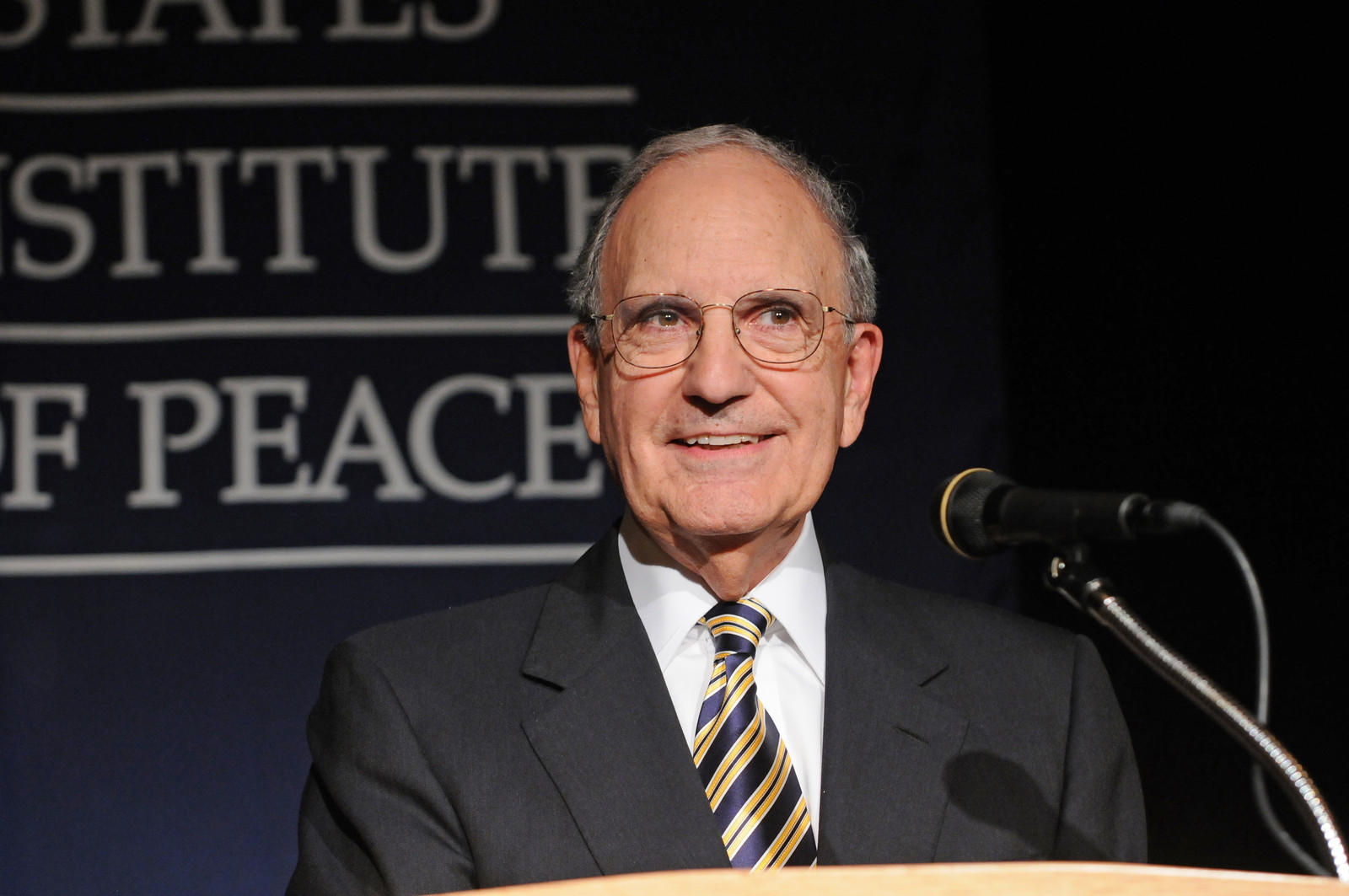
2010: Senator George J. Mitchell
U.S. Senator George J. Mitchell, special envoy for the Middle East, delivered the 2010 the USIP Dean Acheson Lecture, on Monday, May 24 in front of a packed audience.
Senator Mitchell spoke about lessons learned from Northern Ireland and how, despite the vast differences between that conflict and the Israeli-Palestinian conflict, certain truths about international conflict still hold. | Read more
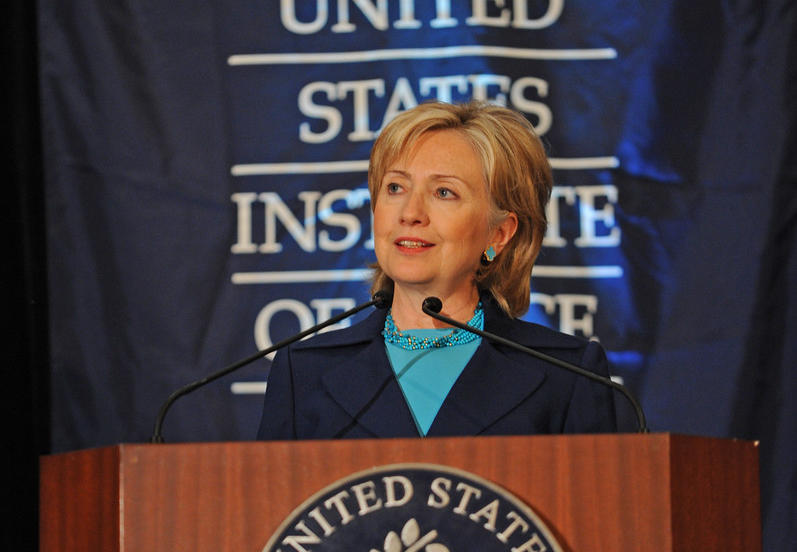
2009: Secretary of State Hillary Clinton
In remarks focused on nuclear nonproliferation and timed to coincide with the Institute’s 25th anniversary, Secretary of State Hillary Clinton delivered the 2009 Dean Acheson lecture. In addressing the United States Institute of Peace, U.S. Secretary of State Clinton talked about the important work we are doing in the area of non proliferation, including the recent report issued by the Congressional Commission on the Strategic Posture of the United States, chaired by former Secretary of Defense William J. Perry with James R. Schlesinger as vice chairman. The report examined key issues related to national security, arms control and nuclear technology. | Read more
- Hillary Clinton delivers keynote address at USIP 25th Anniversary
Video | October 21, 2009
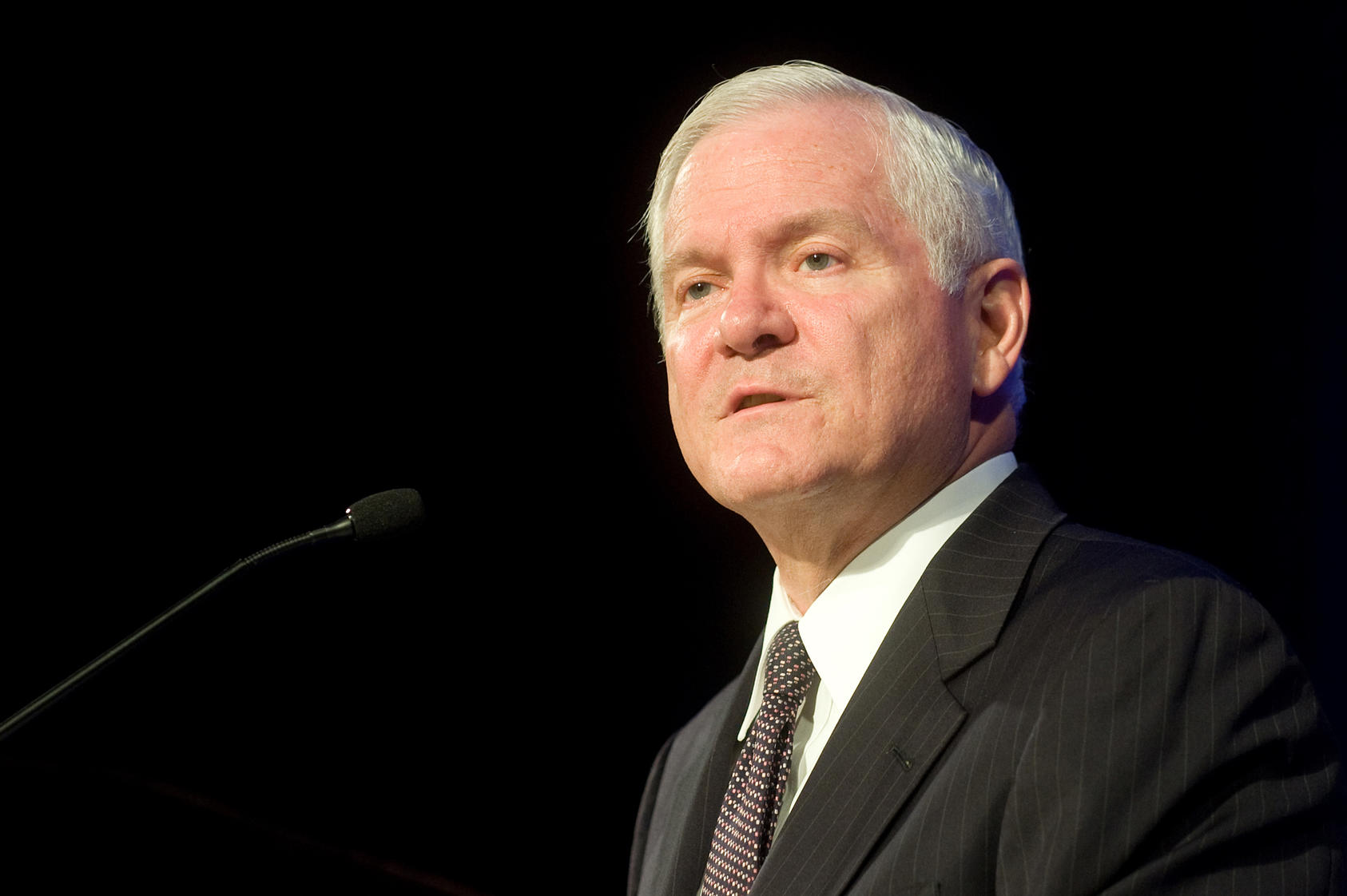
2008 Lecture: Secretary of Defense Robert M. Gates
On October 15, 2008, U.S. Secretary of Defense Robert M. Gates delivered the keynote speech at the U.S. Institute of Peace’s first Dean Acheson Lecture. In his address, Gates called for the United States to develop national security institutions better able to respond to increasingly complex challenges in international conflict settings. | Read more
